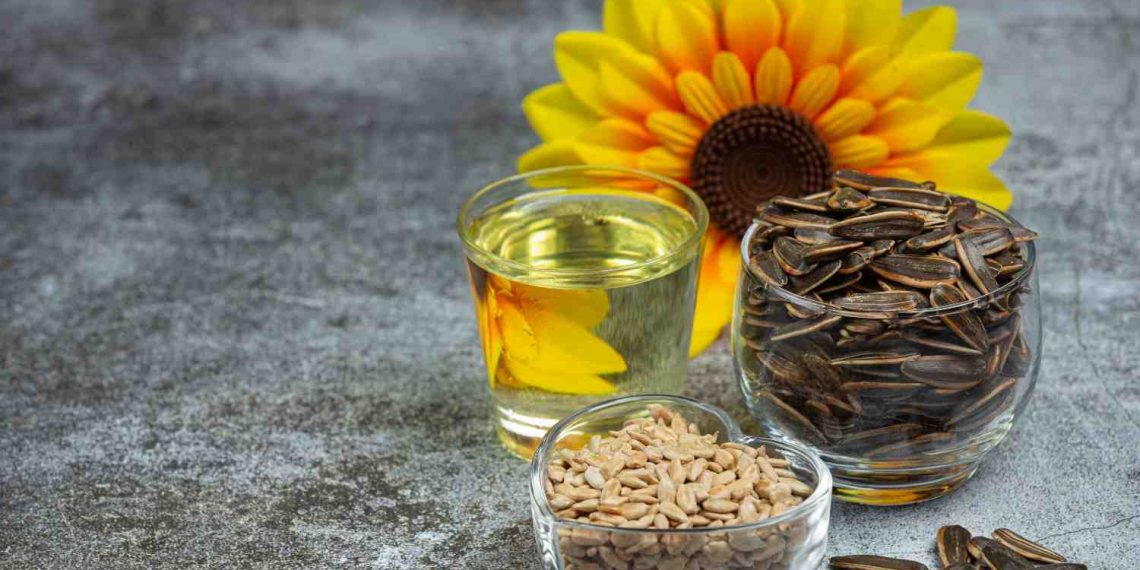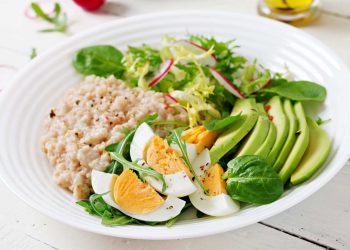Contents
- 5 Reasons Sunflower Seeds Boost Bone Density Naturally
- Nutrient Powerhouse: Essential Minerals and Vitamins
- Antioxidant Benefits: Protecting Bones from Damage
- Healthy Fats: Supporting Hormonal Balance
- Incorporating Sunflower Seeds into Your Diet: Practical Tips
- Caveats and Considerations
- FAQs
- Conclusion
- References
5 Reasons Sunflower Seeds Boost Bone Density Naturally
Mid-morning breaks often feature a popular mix of snacks—consider a bowl of sunflower seeds, the crunchy treat that many enjoy for its taste. However, these small seeds offer much more than just flavor; they play an intriguing role in enhancing bone health. If you’ve ever wondered about the connection between what you eat and how it affects your bones, sunflower seeds might be one of the pleasant surprises you’ve been overlooking.
Bone density is crucial for overall health; it’s your body’s way of ensuring that you stay strong and active as you age. Yet, as many people grapple with the increasing risk of osteoporosis and fractures, it becomes essential to explore natural dietary options that can help fortify bones. This article delves into five reasons why sunflower seeds can be a beneficial addition to your diet for boosting bone density.
Nutrient Powerhouse: Essential Minerals and Vitamins
Sunflower seeds boast a unique nutritional profile that directly supports bone health. They are particularly high in magnesium, phosphorus, and vitamin K—nutrients critical for maintaining bone density.
Magnesium
Magnesium is an essential mineral that plays a crucial role in converting vitamin D to its active form, which aids in calcium absorption within the bones. A study conducted by Pimentel et al. (2020) showed that magnesium-deficient diets in adults led to notable reductions in bone mass [1]. In simplistic terms, without sufficient magnesium, your bones could be deprived of the calcium they need to stay strong, making sunflower seeds a worthy addition.
Phosphorus
Next up is phosphorus, another mineral that works in tandem with calcium to build and maintain healthy bones. Research in the Journal of Bone and Mineral Research indicates that a balanced ratio of calcium and phosphorus is vital for achieving optimal bone mineral density (Dawson-Hughes et al., 2015) [2]. Sunflower seeds, containing about 50 mg of phosphorus per ounce, easily contribute to this balance.
Vitamin K
Lastly, vitamin K plays a significant role in regulating calcium in the bones and blood. According to a 2018 study, higher intakes of vitamin K were associated with increased bone mineral density (Khan et al., 2018) [3]. With about 20% of the recommended daily intake per ounce, sunflower seeds are an excellent food source of this bone-boosting vitamin.
Antioxidant Benefits: Protecting Bones from Damage
Diving deeper, we find that sunflower seeds are a treasure trove of antioxidants like vitamin E and selenium. These compounds contribute not only to overall health but also specifically to bone health.
Vitamin E
Vitamin E, an effective antioxidant, helps combat oxidative stress, which has been linked to bone loss. A study by Wu et al. (2019) highlighted that oxidative stress can inhibit osteoblast function (the cells responsible for bone formation) [4]. Including sunflower seeds, rich in vitamin E, may therefore provide a protective effect against oxidative damage.
Selenium
Selenium’s role, while more subtle, is also significant. It supports various bodily functions, including the promotion of antioxidant enzymes, which protect bones from inflammatory damage. Insufficient selenium intake has been correlated with increased osteoporosis risk (Baker et al., 2020) [5]. Just a handful of sunflower seeds a day can provide a decent amount of selenium, working quietly to bolster your bone health.
Healthy Fats: Supporting Hormonal Balance
When considering bone health, one cannot ignore the role of hormones—particularly estrogen and testosterone. Healthy fats are vital for hormone production, and sunflower seeds are packed with polyunsaturated and monounsaturated fatty acids.
Hormonal Balance
A 2021 study emphasized how low fat intake could lead to hormonal imbalances, particularly involving estrogen, which significantly affects bone density in both women and men (Jiang et al., 2021) [6]. Sunflower seeds contain heart-healthy fats that can help maintain stable hormone levels. Consuming them regularly might contribute to balanced hormone levels, indirectly supporting bone health.
Incorporating Sunflower Seeds into Your Diet: Practical Tips
Knowing the benefits is one thing; incorporating sunflower seeds into your diet is another. Here are a few simple ways to enjoy these nutrient-dense seeds:
- Salads and Bowls: Toss a handful of sunflower seeds into your salads or grain bowls for added crunch and nutrition.
- Smoothies: Blend them into your morning smoothies for a creamy texture and nutrient boost.
- Snacking: Use them as a healthy snack on the go. Roasted and lightly salted varieties are often a favorite.
- Baking: Add them to your homemade granola, bread, or muffins.
- Nut Butter Alternative: Sunflower seed butter is a tasty and safe alternative for those with nut allergies.
Caveats and Considerations
Though sunflower seeds offer a fantastic array of nutrients, moderation is essential. They are calorie-dense, and overconsumption can lead to unwanted weight gain if you’re not mindful. A serving size of about one ounce per day can keep your intake balanced.
Also, individual health conditions may call for tailored dietary advice. For instance, individuals with specific allergies or those who are on anticoagulant medications should consult their healthcare provider regarding sunflower seed consumption.
FAQs
1. How often should I eat sunflower seeds for bone health?
Generally, one ounce (about a quarter cup) several times a week is beneficial. It’s all about incorporating them into a balanced diet rather than relying on them solely.
2. Can I get enough magnesium from sunflower seeds alone?
While sunflower seeds are a great source, they shouldn’t be the only magnesium source in your diet. Pairing them with leafy greens, nuts, and whole grains can enhance intake.
3. Are there any risks associated with sunflower seeds?
Some people may experience allergies, and excessive consumption can lead to weight gain or gastrointestinal issues. Moderation is key.
4. What are some alternative seeds that also promote bone health?
Flaxseeds, chia seeds, and pumpkin seeds are excellent alternatives, all of which offer unique nutrient profiles conducive to bone health.
Conclusion
The bond between sunflower seeds and bone health serves as yet another reminder of how what we consume can significantly impact our overall well-being. By incorporating sunflower seeds into your daily routine, you not only enjoy their delightful taste but also bolster your body’s mission to maintain strong bones. Embrace these little seeds as part of a larger, health-conscious approach to life; it’s a simple step toward nourishing your bones naturally.
References
- Pimentel, R., et al. (2020). The role of magnesium in osteoporosis and bone mineral density. Nutrition Reviews. URL: Link
- Dawson-Hughes, B., et al. (2015). The influence of calcium and phosphorus on bone mineral density. Journal of Bone and Mineral Research. URL: Link
- Khan, K., et al. (2018). Vitamin K intake and bone mineral density: a review of the literature. Nutrients. URL: Link
- Wu, H., et al. (2019). Oxidative stress and osteoblasts: a review. Antioxidants. URL: Link
- Baker, R., et al. (2020). Selenium, oxidative stress, and bone health in postmenopausal women. Clinical Nutrition. URL: Link
- Jiang, Y., et al. (2021). The relationship between dietary fat intake and bone mineral density in adults. Nutrients. URL: Link
Get Your FREE Natural Health Guide!
Subscribe now and receive our exclusive ebook packed with natural health tips, practical wellness advice, and easy lifestyle changes — delivered straight to your inbox.















